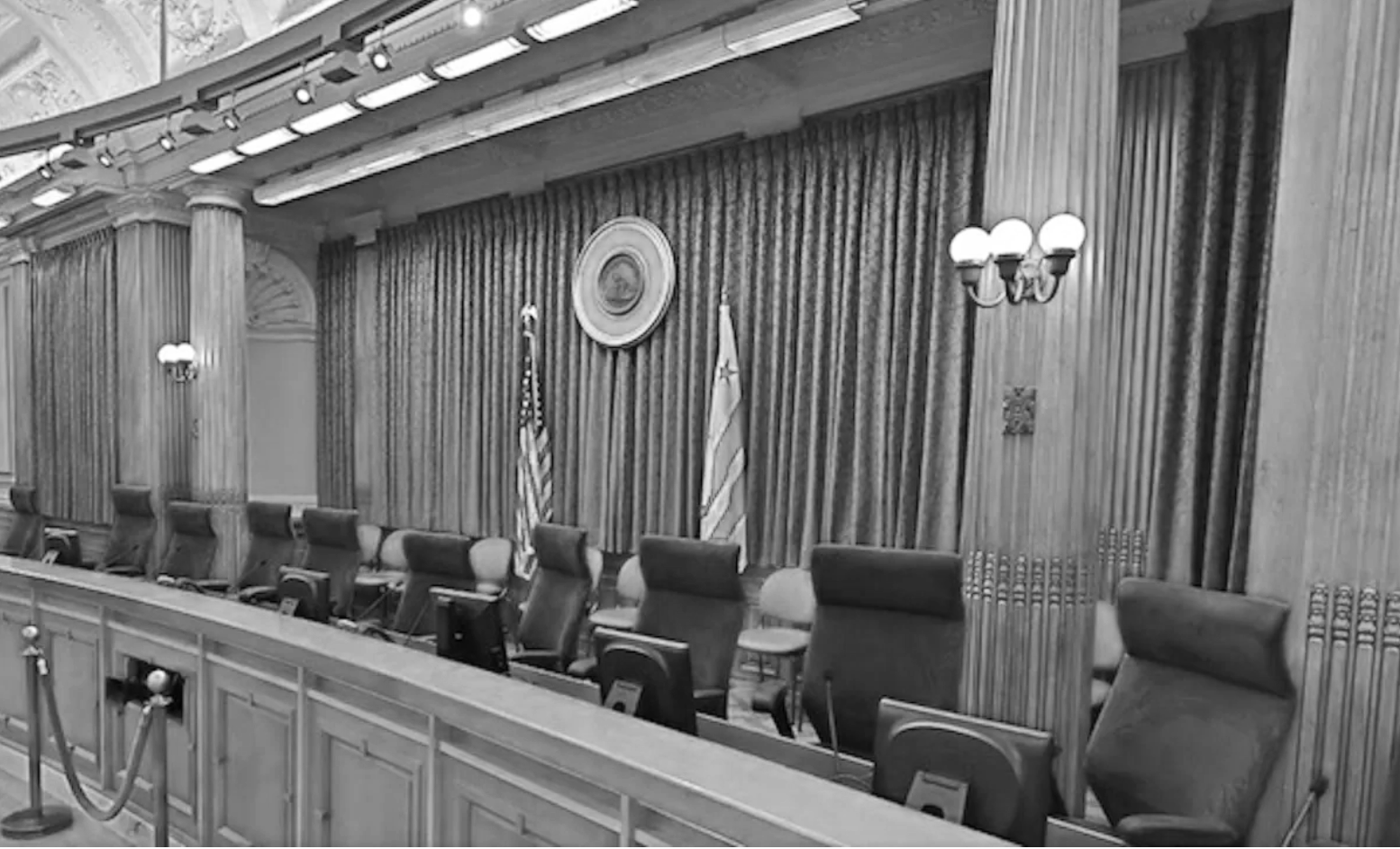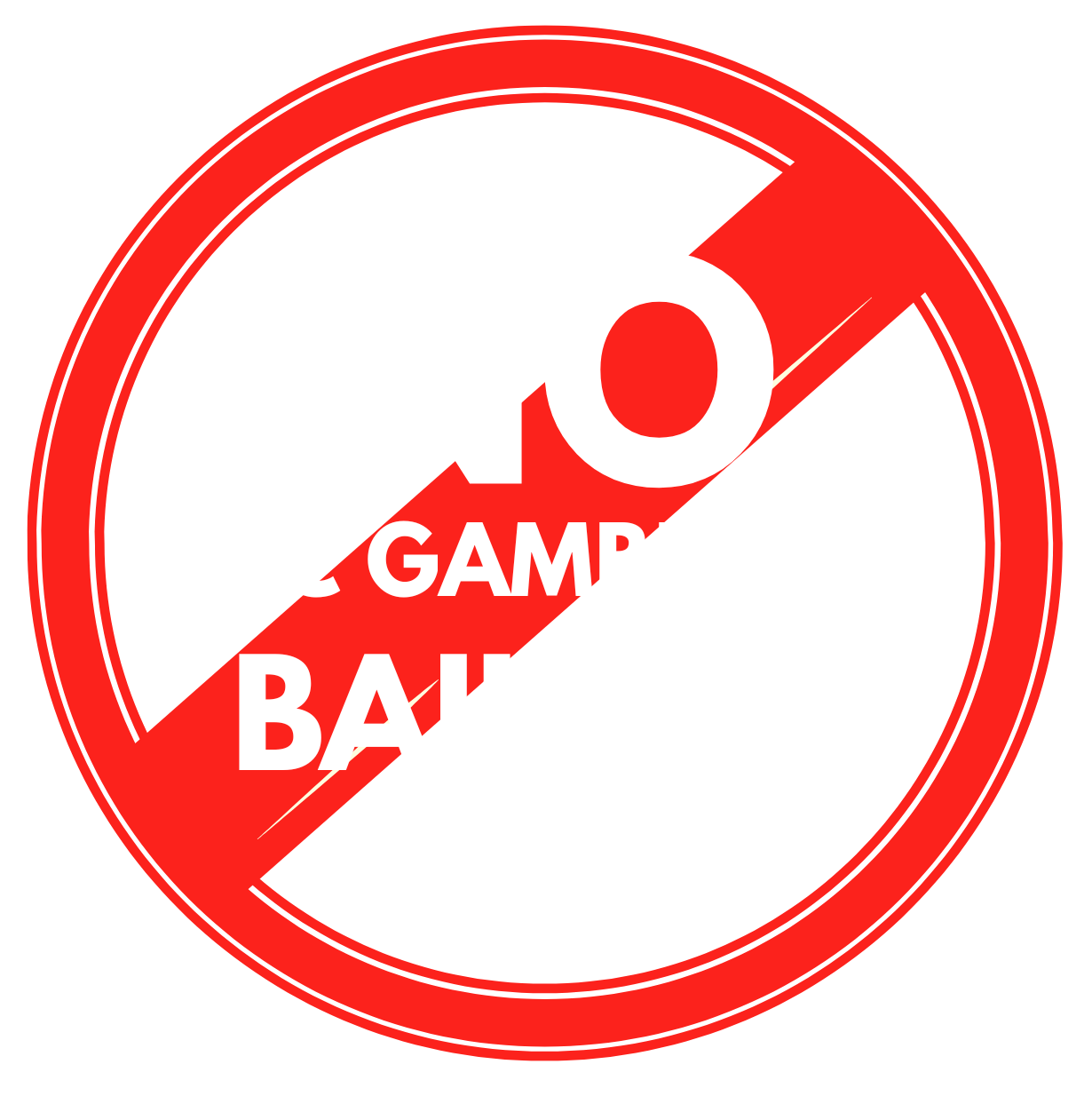
Big gambling companies owe dc more than $300 million!
Where is the DC Council when we need them?
Email the DC Council!
Don’t let them throw away hundreds of millions of needed dollars
The D.C. Council is quietly working to bailout big gambling corporations that owe the District over $300 million. Why? It’s anyone’s guess, but it has to stop. Lend your voice to this effort by using the button below to email the Council.
What’s Really Happening
The District of Columbia is legally entitled to massive gambling-related recoveries, money that could fund public education, housing, health care, and community services. But now, buried deep in the DC Council’s budget bill is a provision that would eliminate DC’s right to these funds, handing a massive bailout to gambling corporations. At a time of budget shortfalls and service cuts, this shady maneuver blocks urgently needed public revenue, and rewards powerful insiders.
It’s up to you to stop this unnecessary giveaway to big gambling companies and fund DC priorities!
warning!
HERE’S WHY bailing out gambling companies is BAD FOR DC
-
Multi-billion dollar sports betting companies knew the law. Now they want the rules changed retroactively to avoid accountability. And some on the Council are helping them do it.
-
As DC faces rising costs and declining revenues, this deal would give up hundreds of millions in funds we are legally owed—money that should support residents, not corporate profit margins.
-
This deal was slipped into the Budget Support Act with no transparency. No hearings. No debate. Just a favor for the powerful, hidden from the public.
Click on image to read our letter to the D.C. Council.
Frequently asked Questions
-
Section 2062 of the Budget Support Act amends Section 16-1702 of the D.C Official Code – sometimes referred to as the Statute of Anne – to exempt sports wagering operators from the District’s prohibition on operators obtaining more than $25 in gambling losses from a gambler in a single sitting. The District’s Statute of Anne currently authorizes any person to bring a public interest lawsuit against gambling operators for violating the act, entitles the District to half of all recoveries, and stipulates that damages are to be trebled if successful.
It’s worth noting that the Statute of Anne is not unique to the District of Columbia. Similar statutes exist in 29 other states nationwide. And the existence of Statutes of Anne, including the District’s statute,are well-known to multi-billion dollar sports wagering operators. Huge multi-hundred-million-dollar settlements have been paid in cases invoking these statutes.
-
The Statute of Anne was originally enacted in the eighteenth century to reduce the social ills that came with high stakes gambling.[1] Today, 30 states, including the District, retain some version of the Statute of Anne. The survival of these statutes demonstrate a multi-hundred-year unbroken line of most jurisdictions allowing an action for recovery of gambling losses. And courts and enforcers have continued to use these laws to enforce reasonable limits on gambling.[2]
Until recently, the practical impact of these laws was limited. But with the rise of the digital age[3] and the recent loosening of anti-gambling restrictions, gambling operators have greatly expanded their operations. They have often done so in outright defiance (or at least reckless disregard) of long-standing laws like the Statutes of Anne, perhaps betting that the opportunities for massive profits outweigh the risk of enforcement.
————-[1] Ronald J. Rychlack, Lotteries, Revenues and Social Costs: A Historical Examination of State-Sponsored Gambling, 34 B.C. L. Rev. 11, 15-20 (1992).
[2] See, e.g., Applicability of Statute of Anne Provisions Regarding Gambling, Tenn. Op. Atty. Gen. No. 04-046, 2004 WL 789813, at *4 (Mar. 18, 2004) (“Clearly, some of the legal principles contained within the 1710 Statute of Anne designed to curtail excessive gambling losses have been included, and even expanded, within Tennessee law.”); Berkebile v. Outen, 426 S.E.2d 760, 762-63 (S.C. 1993) (applying the “plain and ordinary meaning” of South Carolina’s Statute of Anne, which “remained unchanged since 1712,” despite challenger’s argument about “the age of the statute”).
[3] See, e.g., Legalized gambling is exploding globally. What policies can limit its harms?, Harvard Kennedy School (Nov. 15, 2024), available at https://www.hks.harvard.edu/faculty-research/policycast/legalized-gambling-exploding-globally-how-policy-can-limit (“Turbocharged by the internet and mobile technology, legalized gambling has exploded across the globe, leaving behind ruined lives, broken families and financial hardships, and should now be classified as a major public health concern.”).
-
This bailout was presumably included in the BSA at the behest of powerful multibillion dollar corporations to help insulate defendants from liability in response to a lawsuit, DC Gambling Recovery LLC v. American Wagering, Inc. et al., filed on February 28, 2025 against several sportsbook wagering companies.
-
No. The District is not a defendant, is not required to litigate or expend any resources in the suit, and has no potential liability if the plaintiffs are successful.
-
Yes. D.C. Code 16-1702(b) stipulates that the District is entitled to half of any damages recovered through a claim brought by a private party as a public interest lawsuit. Where gambling operators have been sued under Statutes of Anne, they have been required to pay significant settlements or verdicts. To name just a few recent examples:
After a verdict of over $1.2 billion, the Commonwealth of Kentucky recovered $300 million in a settlement against the internet gambling site PokerStars. See Commonwealth ex rel. Brown v. Stars Interactive Holdings (IOM) Ltd., 617 S.W.3d 792, 796 (Ky. 2020).[1]
Similarly, after a favorable decision in Kater v. Churchill Downs Inc., 886 F.3d 784 (9th Cir. 2018), plaintiffs obtained more than $651 million in settlements against gambling companies for allegedly profiting off internet gambling operations.
Just last month, a Washington court entered a jury’s award of $25 million against an online gambling operator operating in that State. Larsen v. PTT, LLC¸2025 WL 1654351, at *1 (W.D. Wash. June 11, 2025). A groundswell of similar actions remain pending nationwide. See, e.g., Silvia Pavlof, Stake.us Hit with Class Action Lawsuit in Illinois, Gambling News, https://tinyurl.com/mpe963ke (Apr. 9, 2025) (noting two similar class actions recently filed against social casinos).
—————[1] This settlement was paid by Flutter Entertainment, which now owns FanDuel, one of the defendants in DC Gambling Recovery LLC’s lawsuit.
-
We conservatively estimate that the District could expect to recover several hundreds of millions of dollars with a successful verdict. The lawyers at Kellogg, Hansen, Todd Figel & Frederick PLLC and Cadeaux, Taglieri & Notarius are sophisticated lawyers with deep experience who are prosecuting this case on a contingency fee basis. These lawyers are in high demand, and by investing significant time and money into the case, they are demonstrating their confidence in the merits of the case and the magnitude of the potential recovery for the District. These lawyers are based in the District with significant ties to the community.
-
No. There is No Possibility that the District Will Be Liable for Any Money if Section 2062 of the BSA is Amended to be Prospective.
The sports gambling companies have floated as a scare tactic that the District may have liability under the Statute of Anne if Section 2062 is amended to be only prospectively applicable. This is nothing more than a last-ditch effort to preserve their bailout in the current draft BSA. The gambling companies owe the District a lot of money—potentially more than $300 million.
Their recent appeals to the Council have essentially acknowledged they owe the District lots of money. First, they said that the law has to change because the DC Gambling Recovery case would bankrupt them. This is nonsense, as the sports gambling companies have a combined $120 billion market capitalization and more than $9 billion in cash on hand. Now they are saying that the District may have liability for the three months that FanDuel operated as a subcontractor to Intralot. That itself acknowledges that FanDuel itself is liable to pay the District millions of dollars if DC Gambling Recovery’s lawsuit it successful.
Regardless, the argument is wrong.
1. No one can sue the District under the Statute of Anne. And no one has. First, any such claim would be time-barred because no party gave “notice to the Mayor” within “six months of the injury,” as they must before suing the DC government for unliquidated damages. D.C. Code § 12-309. And second, DC is not a gambling “winner” for purposes of the Statute of Anne because it never risked any of its own money. D.C. Code § 16-1702. Under its sports gambling relationship with Intralot or FanDuel, the District was entitled only to a percentage of the gross gambling revenue.
2. Intralot and FanDuel could not recover money from the District. Even if the wagers conducted under the Intralot contract could somehow be litigated, the District would not be the one on the hook—Intralot would be. Under the Intralot contract, Intralot and FanDuel warranted that they would operate “in compliance with all applicable requirements of any applicable law, statute, rule or regulation.” See Contract No. CFOPD-19-C-041 at H.4.19. If the district court agrees with DC Gambling Recovery that the operates are subject to liability under the Statue of Anne, then FanDuel and Intralot have both arguably breached their contract and could not sue or recover from the District.
3. If anything, Intralot and FanDuel could sue only their insurance providers. As part of its agreement with the District, Intralot was contractually required to obtain a large amount of insurance coverage for “ongoing and completed operations under all subcontracts,” and indemnify the District for “any error or omission caused by the Contractor, its officers, employees, Sales Agents, or subcontractors.” Id. §§ H.26, H.28, I.30.
4. Even if FanDuel could sue the District, that would offset the District’s recovery by a small fraction. Any potential liability the District faces in a hypothetical lawsuit by FanDuel would materialize only if DC Gambling Recovery succeeded in Federal Court. If that happened, the District will recover hundreds of millions of dollars. We have estimated that the amount FanDuel could even theoretically seek to collect from DC in this case would be less than 5% of D.C’s total recovery. In other words, the District will still end up with hundreds of millions of dollars.




